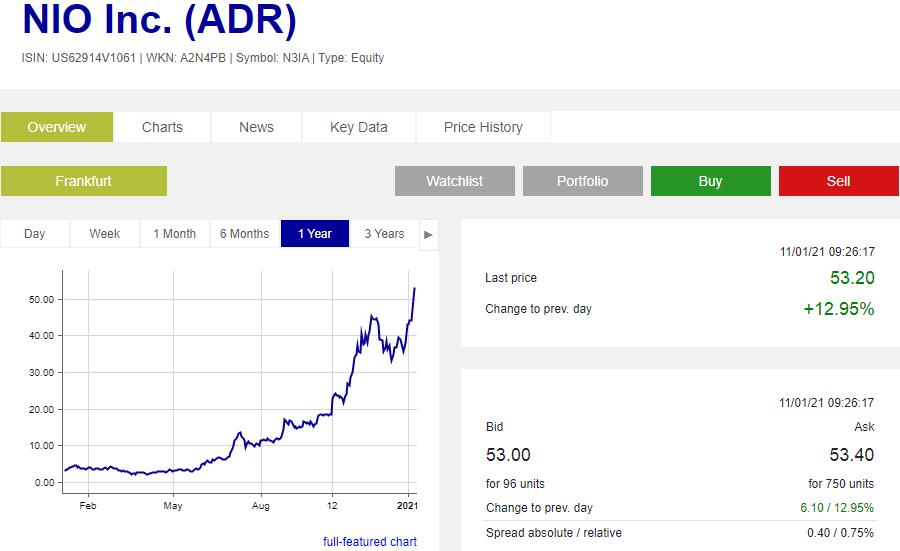Chinese electric vehicle (EV) maker Nio's ADR is now trading up 12.95 percent as of 9:26 a.m. local time in Frankfurt (GMT+1), Germany, after the company unveiled its first sedan, the ET7, over the weekend.

On January 9, Nio hosted Nio Day 2020 to unveil its new sedan ET7, NAD (Nio Autonomous Driving) and 150kWh battery pack, as well as a subscription-based charging model for autonomous driving services.
This was also the first Nio Day after it comes out of a difficult business situation. CICC, a top Chinese investment bank, believes that the new products and services released at the event exceeded market expectations and will also have a positive impact on the company's operations and share price.
Nio's NAD demonstrated leading autonomous driving strength, and the ET7 model also reflected excellent product power and price competitiveness, thus raising the company's price target by 42% to $85, corresponding to 44% upside, CICC said in a report released today.
According to Nio, NAD can gradually realize point-to-point autonomous driving in scenarios such as high-speed, urban, parking, and power-up.
CICC said NAD opens a new round of hardware race to set the current benchmark for autonomous driving hardware platforms and pioneer subscription fees.
CICC maintained its Outperform rating on Nio, raised the valuation on the vehicle sales and software segments, and increased its price target by 42% to $85, corresponding to 44% upside.
At Nio Day 2020 in Chengdu on January 9, Nio unveiled its first all-electric sedan, the Nio ET7, the first model to be powered by a 150kWh solid-state battery pack with a maximum range of over 1,000km.
The Nio ET7 with a 70kWh battery pack is priced from RMB 448,000 ($69,000) without subsidies. The 100kWh battery pack version is priced from RMB 506,000 without subsidies.
William Li Bin, founder, chairman, and CEO of Nio, said the reason for the delay in delivery until next year is that the model contains so much technology.
The new 150kWh battery pack has increased energy density to 360wh/kg, allowing it to still increase battery capacity while keeping the pack size the same.
The battery will be delivered in the fourth quarter of next year and all owners will be able to upgrade.